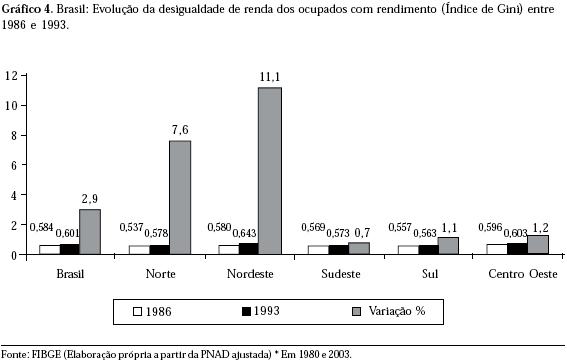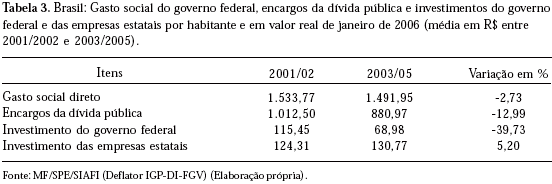Located on the fringe of global capitalism, lacking an international currency and endowed with weak technology production and dissemination capacities, Brazil is developing its own very specific approach to social welfare policies. Its 1988 Constitution ushered in acknowledged progress in these policies during the past two decades, despite constraints due to the general behavior of its lackluster economy, with rising unemployment and a shrinking job pool. In parallel, the semi-stagnation of its per capita income has been paced by a steady stream of tax adjustments, hobbling more recent developments in social spending. All these efforts often achieve little more than upholding the wealth financialization cycle, mainly for the tiny portion of society holding public debt papers. An analysis of this specifically Brazilian situation leads to a better understanding of missed opportunities for cutting away many of Brazil's social shackles, as welfare policies have significant impacts on lower-income segments of the population.
Unemployment; Minimum wage; Income; Poverty; Inequality; Taxation









